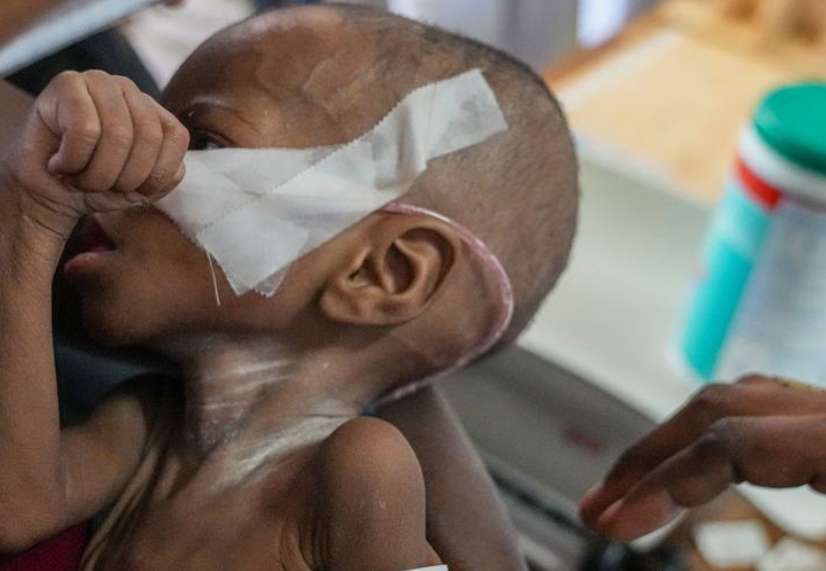Former Biodefense Official Criticizes US Withdrawal from WHO.
The United States, historically a dominant force in shaping global health policies, faces a potential shift in its role under the renewed Trump administration. President Trump’s executive orders, including withdrawal from the World Health Organization (WHO), signal a departure from established international collaborations and raise concerns about the future of global health initiatives, particularly in less developed nations. Experts warn that this move creates a leadership vacuum that China may fill, a scenario detrimental to U.S. interests. The orders, echoing the conservative Heritage Foundation’s “Project 2025” blueprint, criticize the WHO’s handling of the COVID-19 pandemic and allege that U.S. aid destabilizes global peace, promoting agendas contrary to harmonious relations. This rhetoric reflects a broader critique of the Biden administration’s foreign policy, particularly its focus on issues like abortion, climate change, and gender equality.
The U.S., a major contributor to global health initiatives through agencies like the WHO and USAID, risks jeopardizing vital healthcare services and disease outbreak responses, particularly in resource-constrained countries. Critics argue that withdrawing from international collaborations not only compromises global health security but also increases vulnerability to transnational health threats. Travel bans, often touted as protective measures, are deemed ineffective and distracting from crucial domestic actions needed to ensure safety. While technicalities surrounding WHO withdrawal may delay the process, Trump’s 2020 notice provides a basis for his administration to argue for immediate action. Funding cuts to the WHO during his previous term, though subsequently restored by the Biden administration, highlight the precarious nature of U.S. financial commitments to global health.
Trump’s executive order cites “unfairly onerous payments” to the WHO as justification for withdrawal. While the U.S., as the wealthiest nation, contributes a significant portion of the WHO’s budget, this represents a small fraction of the overall U.S. federal expenditure. The WHO’s relatively modest budget supports critical programs targeting diseases like polio, tuberculosis, HIV, and malaria, primarily in countries lacking robust healthcare systems. Furthermore, the WHO plays a crucial role in responding to health emergencies in conflict zones where the U.S. government has limited presence. The organization’s early warning system, crucial in alerting the world to the COVID-19 pandemic, and its subsequent efforts in coordinating global responses, underscore its vital role in international health security. While acknowledging some missteps, experts emphasize that the U.S.’s high COVID-19 death toll is largely attributable to domestic policy failures rather than WHO inadequacies.
Despite accusations of mishandling the pandemic, the WHO has implemented reforms, including revised regulations on health emergencies, incorporating provisions for transparent reporting and coordinated financing. Critics dismiss the “reform” argument as a pretext for withdrawal, highlighting the lack of substantial U.S. engagement in promoting specific changes. The executive order also accuses the WHO of complicity with China’s lack of transparency regarding COVID-19’s origins and inappropriate political influence. While the WHO has repeatedly called for transparency from China, it lacks the authority to compel compliance. This also refutes claims that the ongoing pandemic treaty negotiations infringe on U.S. sovereignty. The treaty, aimed at enhancing international cooperation in future pandemics, faces opposition from the U.S. and pharmaceutical industry lobbying efforts regarding intellectual property rights.
The U.S. withdrawal from the WHO and the pandemic treaty negotiations could potentially shift the balance of power in global health governance. The pharmaceutical industry may lose a powerful ally in upholding strict patent rights, potentially leading to more public-health-oriented approaches to intellectual property. Emerging economies in Asia and Africa might increase their contributions to the WHO and exert greater influence on policy decisions, potentially reshaping the global health landscape towards greater equity. However, the immediate impact of the U.S. withdrawal is likely to be negative, with the WHO struggling to recoup lost funding and potentially impacting access to essential health services. Scientific collaborations facilitated through the WHO and its affiliated centers in U.S. institutions are also at risk.
Beyond the WHO, other executive orders targeting international aid and promoting an “America First” foreign policy raise concerns about the future direction of U.S. global engagement. The orders, mirroring recommendations in the Heritage Foundation’s Project 2025, call for a review of international aid programs and a realignment with U.S. foreign policy objectives. Critics view these actions as ideologically driven rather than strategically motivated, potentially harming vulnerable populations reliant on U.S. assistance. The executive orders’ alignment with Project 2025, despite official denials, raises questions about the influence of conservative think tanks on the Trump administration’s policy agenda. While the long-term implications of these policy shifts remain uncertain, the immediate impact on global health initiatives and international collaborations is a cause for concern among experts and advocates.
Share this content:












Post Comment